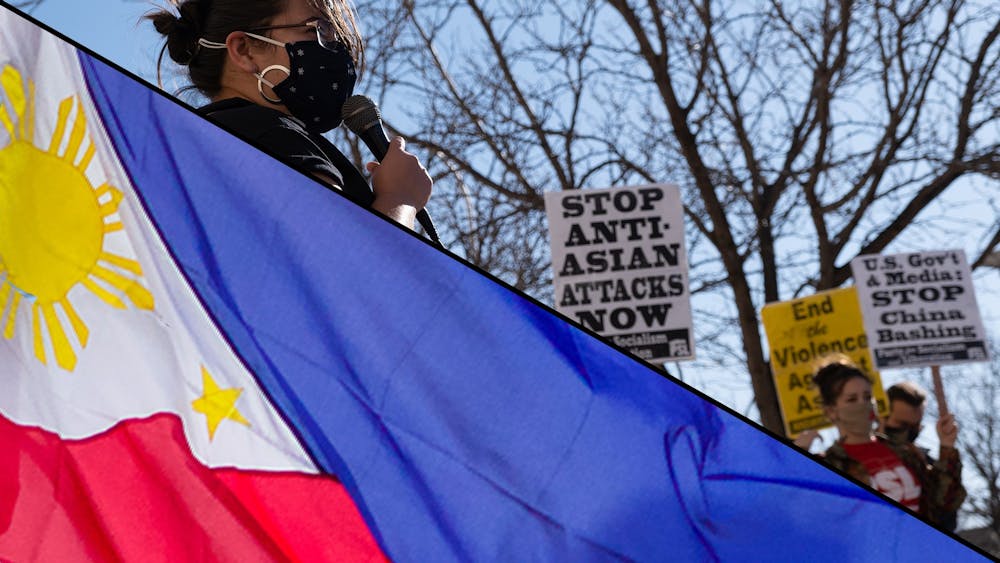Philippines Independence Day on June 12 not only commemorates the day the nation was declared as independent from Spanish colonial rule, but also serves as a continual reminder of the struggle for the liberation of Filipinos in America.
My family settled into New Mexico in 2008, when I was in third grade. My mom had been living in the state for three years already, working as a nurse, but my dad was still waiting on his visa before he could come to the mainland from Saipan, an island 120 miles north of Guam.
Settling in the United States marked our family’s first generational migration from the Philippines as well as the beginning of what would become a complex relationship between my identity and my birthplace. From being born in the Philippines to my childhood migration from Saipan to New Mexico, I have been living on land that has been and remains colonized.
In third grade, I wasn’t young enough to be ignorant of my “foreignness.” However, I wasn’t exactly old enough to fully understand these strange, uncomfortable feelings either. I was always staunchly aware that I was unlike the other kids somehow, and my classmates didn’t exactly help assuage those feelings. I remember at times resenting being born in the Philippines, feeling as if I were tree yanked from its roots and dumped into a damp swamp.
This resentment would subside, however, and not through acceptance, pride or education, but through assimilation. Over the years, I adapted well into Western culture and my internal resentment of being a Filipino immigrant washed away as I slowly forgot where I came from. I had assimilated well — perhaps too well.
Assimilation was a double-edged sword for me. What my parents earnestly thought would help me succeed in America ended up turning into something more complicated and difficult as I became more aware of how systemic racism is embedded in the fabric of American society.
I still don’t know where I stand between New Mexico and the Philippines, and I feel as if I occupy the space between “Asian American” rather than holding either title. No sense of belonging waited for me here nor there. I felt too whitewashed to call myself Filipino and too foreign to call myself an American.
These conflicting emotions amplified during the pandemic. By the time Donald Trump called the coronavirus the “Chinese virus” and anti-Asian hate crimes started to dominate headlines, I was in my first semester at UNM and a reporter for the Daily Lobo.
When reports about anti-Asian hate crimes persisted, I became paralyzed. Through reasons beyond me, I felt as if I wasn’t qualified as a journalist or as a community member to report on these stories. I felt too inexperienced as a student journalist to even try, and I was too aloof from my own culture to even understand.
The Lobo didn’t, and still doesn’t, have a lot of Asian reporters, so I selfishly thought I — and I alone — bore the burden of not only reporting on the issue but also offering solutions for the hate crimes (of which I had none).
As lost as I still am, the answer, however, could not be clearer. It lies in the accents of my parents, and in the faces of my fellow Filipinos. It lies in my father’s chicken adobo and the stew of sinigang. It lies in our history books, and it lies ahead in the education of the future generation. The answer lies in the community and our collective decolonization.
Disconnected as I may feel, I could never be completely severed from my birthplace when I remember that the atoms of my body were formed and arranged by Filipinos, my heart as I sleep beats with the blood of my ancestors and every breath taken here in the States directly hails from the Philippines.
Get content from The Daily Lobo delivered to your inbox
Decolonization can be painful and uncomfortable; to forcibly divorce these systems and patterns of thinking that I have grown accustomed to and dependent on for most of my life is an enduring and disciplined task. But there is no other option, lest I neglect my own rightful existence.
Decolonization is a duty whose weight still holds the gravity of trauma — undoubtedly a weight too heavy for myself to bear alone. Fortunately, I realize now that I am not as alone as I selfishly thought.
The struggle for independence persists and is shared with my ancestors to whom my success in this promised land would only reach their wildest dreams. It is a struggle shared with my parents and friends whom I dine with, and it is a struggle likely to be shared with the forthcoming generation. Hopefully, in the future, it will be a struggle not shared, but remembered.
Gabriel Biadora is the news editor at the Daily Lobo. He can be contacted at news@dailylobo.com or on Twitter @gabrielbiadora






